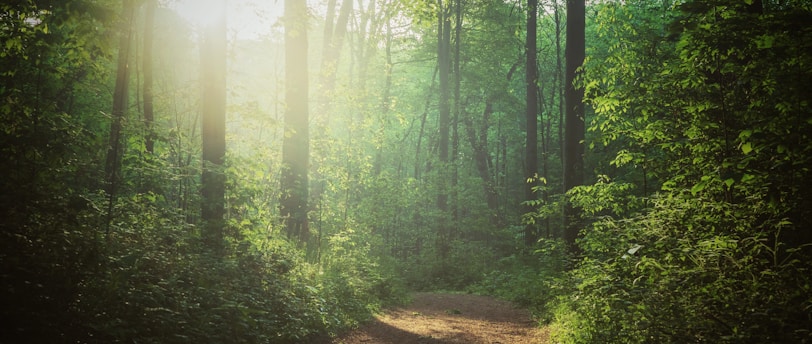Conservation: The Key to a Sustainable Future
Conservation is the practice of protecting and preserving natural resources. It is essential for ensuring a sustainable future for our planet. This blog post discusses the importance of conservation and provides a green goods guide to help you find sustainable products.
7/25/20233 min read


Conservation is the practice of protecting and preserving natural resources, such as land, water, and wildlife. It is essential for ensuring a sustainable future for our planet.
Why is conservation important?
There are many reasons why conservation is important. First, it helps to protect the environment. When we conserve resources, we reduce our impact on the planet and help to prevent pollution and climate change.
Second, conservation helps to ensure that future generations have access to natural resources. If we don't conserve resources now, they may not be available in the future.
Third, conservation can help to boost the economy. Sustainable businesses that focus on conservation can create jobs and generate income.
How can we conserve resources?
There are many different ways to conserve resources. Some common practices include:
Reducing our consumption of natural resources. We can do this by making small changes in our everyday lives, such as turning off lights when we leave a room, unplugging appliances when they're not in use, and driving less.
Recycling and composting. Recycling helps to reduce the amount of waste that goes to landfills, and composting helps to reduce the amount of food waste that ends up in landfills.
Using sustainable products. There are many sustainable products available on the market, such as recycled paper products, organic food, and Fair Trade clothing.
Conserving water. Water is a precious resource, and we need to do our part to conserve it. We can do this by taking shorter showers, fixing leaky faucets, and watering our lawns less often.
Reducing our energy consumption. We can reduce our energy consumption by using energy-efficient appliances, turning off lights when we leave a room, and unplugging appliances when they're not in use.
Protecting wildlife habitats. Wildlife habitats are important for the survival of many species of plants and animals. We can help to protect wildlife habitats by supporting conservation organizations and avoiding activities that harm wildlife.
How can I get involved in conservation?
There are many ways to get involved in conservation. You can start by making changes in your own life, such as reducing your consumption of resources and recycling. You can also get involved in local conservation organizations or volunteer your time to help protect the environment.
Here are a few ideas for how you can get involved in conservation:
Join a local conservation organization. There are many conservation organizations in your community that are working to protect the environment. You can join one of these organizations and get involved in their work.
Volunteer your time. There are many opportunities to volunteer your time to help protect the environment. You can volunteer at a local park, help to clean up a polluted area, or educate others about conservation.
Educate yourself about conservation. The more you know about conservation, the more you can do to help. Read books and articles about conservation, watch documentaries, and attend conservation workshops.
Make changes in your own life. There are many small changes you can make in your own life to help conserve resources. For example, you can recycle, compost, turn off lights when you leave a room, and unplug appliances when they're not in use.
Conclusion
Conservation is the key to a sustainable future. By making small changes in our own lives, we can make a big difference for the planet. Together, we can create a more sustainable future for all.
Green Goods Guide
In addition to making changes in your own life, you can also support conservation by choosing green goods. Green goods are products that are made from sustainable materials or that have a positive impact on the environment.
Here are a few tips for finding green goods:
Look for products that are made from recycled materials.
Choose products that are made from organic materials.
Look for products that are Fair Trade certified.
Choose products that are made in your community.
By choosing green goods, you can help to reduce your environmental impact and support sustainable businesses.
